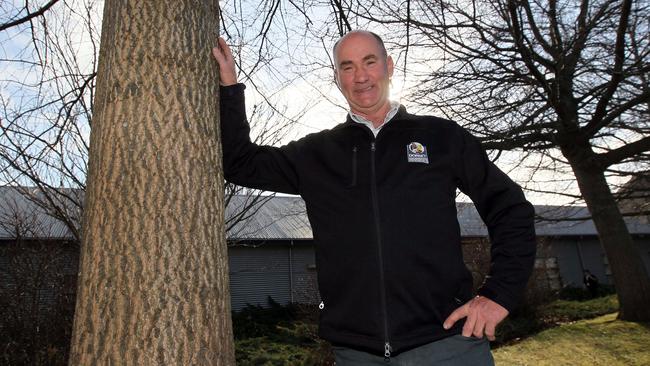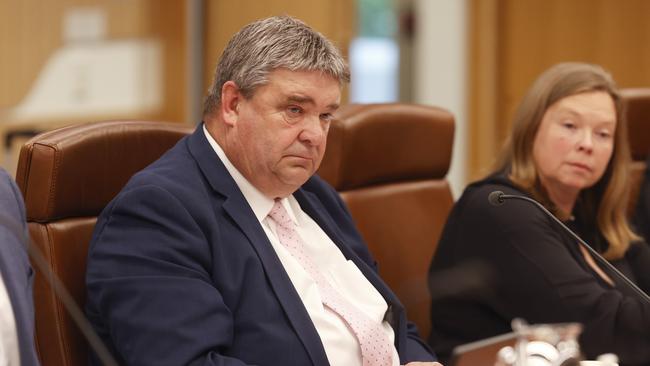Dorset Council Board of Inquiry findings revealed 17 months after council was stood down
An inquiry has revealed a significant failings of governance for a northern Tasmanian council. Here’s what it found.

Tasmania
Don't miss out on the headlines from Tasmania. Followed categories will be added to My News.
A Board of Inquiry into Dorset Council has recommended compulsory training for all councillors after uncovering a litany of breaches including a mayor who described constituents as “c...heads”.
But Local Government Minister Kerry Vincent has stopped short of dismissing the council — whose elected members will be back on the job from Thursday.
Dorset Mayor Greg Howard and councillors were stood down in July 2023, with Commissioner Andrew Wardlaw was appointed in their place.
Local government expert Andrew Paul and barrister Andrew Walker were appointed to look into the northeast Tasmanian council by then Local Government Minister Nic Street in July 2023.
Mr Howard quit the Liberal Party the same month, accusing the government of “going to war with its own people”.
The Board of Inquiry’s final report has found the council carried out unlawful works and vegetation clearing, did not properly manage conflicts of interest; exhibited bias, poor governance and the improper use of legislative authority; and engaged in inappropriate behaviour and communications.

It recommended the Director of Public Prosecutions consider prosecuting the council’s former general manager Tim Watson and former Director Works and Infrastructure, Dwaine Griffin for alleged breaches of the Local Government Act.
The Board also found that Mayor Howard commonly used offensive and inappropriate language, referring to people as “c...head” or “d...head” in email correspondence — and told an employee to “shut the f*** up” at a meeting.
He told the board: “I’m just one of those people who tell it how it is and openly and honestly and if people don’t like it, I’m not too concerned about that.”
But his explanation didn’t wash.
“The Board’s view is that communication in these terms has no place in any workplace, but particularly not in a local council. It is not simply ‘telling it how it is’. It is highly inappropriate,” the report said.
Among their findings, the board found serious failings by elected members and senior staff.
They included a failure to monitor the performance of the general manager as required by the Local Government Act, a failure to pursue the provision of legal advice when it ought to have been provided to them, a failure to comply with statutory or governance obligations.
Examples of offending conduct included council carrying our unlawful construction works, unlawful vegetation clearing and the destruction of an Aboriginal midden.
The report noted that people elected to local government roles did not have the skills required for the roles.
“Councillors, without adequate training and professional development, cannot be expected to fulfil their roles and responsibilities adequately,” it said.
“That induction training as currently undertaken by newly elected councillors, if undertaken in isolation, is inadequate for the role and responsibilities of a current day councillor.
“That initial induction training must be supplemented by ongoing training and development opportunities in key areas of responsibility [and] ongoing training and development should be compulsory and enforced.”
Mr Vincent said as minister, the report was concerning.
“The Board’s findings are serious and not acceptable by any standards, which is why I have accepted their recommendations to issue directions under the Local Government Act to the council, councillors and the Mayor,” he said.
“I am confident all parties will act upon the Ministerial Directions to ensure confidence can be restored within the community, and the council can move forward to deliver positive outcomes for its ratepayers.”
The Board provided its report to the Minister for Local Government in October last year.





